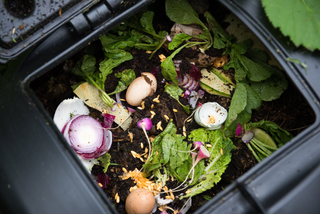Sustainability starts at Home
There are numerous free resources you can utilize to obtain a more energy-efficient and more comfortable home.
A staggering 42% of Sherborn’s town-wide carbon emissions result from residential heating, cooling, and electricity demands. Most of our homes were built more than 20 years ago. Even if you live in a newer home, it likely does not meet current energy efficiency standards. Sherborn homes should be upgraded in order to meet the State's carbon reduction goal of 50% by 2030.
The good news is that there are numerous free resources you can utilize to obtain a more energy-efficient and more comfortable home. Start with a MassSave audit, a state-wide energy efficiency program. It offers a subsidy that covers 75% of the cost of insulation upgrades, with no-cost air sealing, no cost LED light bulbs, and a 0% loan program for financing HVAC and energy efficiency measures. After your energy audit, you can consult with a Sherborn Energy Coach for free. As an unbiased volunteer advisor, an Energy Coach helps you in selecting and installing the right mechanical systems, such as heat pumps, and solar PV. They can also help you compare contractor quotes, and identify available subsidies, tax breaks, and financing options.
Sustainability Starts with Your Yard
Due to the fragile nature of the water supply, the town’s upper soils must be protected against contamination from septic systems, surface run-off, road salt, and hazardous chemicals. Homeowners can significantly reduce their impact on the aquifer, animal, and plant life by following sustainable garden practices. In lieu of harmful pesticides and fertilizers, consider organic lawn management, and start composting. Control invasive plant species and increase the amount of pollinator-friendly native plant species for balancing your yard’s ecosystem.
Sustainability on the Move
Transportation makes up almost 44% of Sherborn's greenhouse gas emissions. Electric vehicles can dramatically reduce your carbon footprint, especially when you charge using renewable electricity. There are over 9,000 EVs on the road in Massachusetts. This trend is expected to continue as more models become available, charging infrastructure improves, and rebates, credits, and incentives up to $10,000 continue to flow. Learn more about EVs here. Consider driving less and utilize carpooling when possible. Riding your bike, combining your errands, and taking the commuter rail can all make a real difference.



